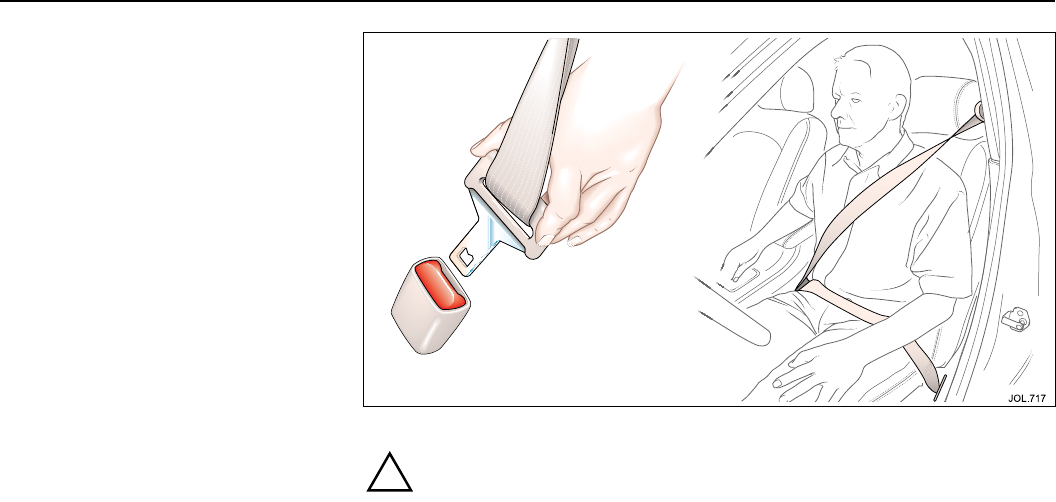
Before driving 3-1
3Before driving
Occupant protection
Seat belts
The use of front and rear seat belts is
mandatory in most countries. Using seat
belts saves lives. They should be worn by
all occupants whenever the vehicle is in
use, for maximum protection.
This vehicle has an individual
lap/shoulder inertia reel seat belt for each
occupant.
The inertia operating mechanism of the
seat belts allows the wearers to move
their upper bodies to reach various
controls. The seat belts will lock
automatically with accelerated body
movement or in the event of emergency
braking. Both front seat belts are
equipped with pretensioners to assist
restraint and safety belt force limiters to
help minimise the risk of upper body
injuries.
Seat belt height adjustment is provided
for driver and front seat passenger to
ensure that the seat belt webbing can be
positioned to pass over the shoulder
without pulling against the neck. It can be
locked in any of five positions.
Seat belt fitting
!
WARNING:
Do not adjust the seat belt while
driving.
Draw the tongue of the seat belt over the
shoulder, across the chest and push it
into the buckle unit slot. A positive ‘click’
indicates that it is safely locked.
The use of comfort clips or devices that
would create slackness in the seat belt
system are not recommended.
Always ensure that the webbing is
midway between the neck and the edge
of the shoulder. Correct tension is
controlled by automatic retraction of the
reel.
A warning light on the instrument panel
comes on when the driver’s seat belt is
not fastened. (In some markets a warning
signal sounds for six seconds.)
Note: If the vehicle is parked on unlevel
ground, the seat belt mechanism may
lock. This is not a fault, gently ease the belt
from its attachment to unlock it.


















